Newly confirmed Secretary of State Mike Pompeo had an impressive first two days on the job. Immediately after being sworn into office, he set off on a high-level diplomatic trip. While Pompeo’s confirmation was moving through the full Senate, several important senior-level positions at State were being filled by well-qualified appointees and rumors of additional appointments were swirling. In 36 hours, Pompeo did more to improve the effectiveness and efficiency of the State Department than his predecessor did in the previous 15 months.
On Friday, Secretary Pompeo landed in Brussels to meet with his NATO counterparts to discuss Russian aggression, ongoing conflicts around the world (Afghanistan, Iraq, Syria and Ukraine), and the strengthening of trans-Atlantic relations. Pompeo’s visit sent the message that the United States intends to remain engaged in international challenges and that alliances—like NATO—are as critical today as they were during the Cold War. This represents a significant change from 2016 when then-candidate Trump described NATO as “obsolete” and “disproportionately too expensive (and unfair) for the U.S.” On the margins of his meetings at NATO, Pompeo was expected to meet with the foreign ministers from Italy and Turkey, two allies that have notably strained relations with the U.S.
After Brussels, Pompeo left for Saudi Arabia, Israel, and Jordan, arguably the U.S.’s closest regional allies, and in the case of Israel and Jordan, two of the largest recipients of U.S. foreign and military assistance. There are many issues that will compete for attention during Pompeo’s swing through the region, including the looming May 12th deadline to decide if economic sanctions against Iran will remain in suspension, the movement of the U.S. embassy from Tel Aviv to Jerusalem, the ongoing conflict in Syria, simmering tensions between the Gulf states and Qatar, and much more. Pompeo has jumped into his new position with both feet in the deep end of the pool.
While he’s out of country, Pompeo’s department will be staffing up. Under Rex Tillerson, numerous positions of the department were left unfilled including eight of the 10 most senior and nearly half of all the assistant secretary positions. When pressed by Congress to explain the vacancies, Tillerson blamed the lengthy vetting process; the White House blamed Senate foot-dragging. Some speculated that the vacancies were the result of tension between Tillerson and the White House who could not agree on personnel choices. Given the spate of confirmations in the last two days, it would seem that the logjam was on Tillerson’s side.
Finally making their way to Foggy Bottom are three well-qualified appointees. Col. Andrea Thompson (ret.) will be the new Under Secretary for Arms Control and International Security; Dr. Yleem Poblette will be the new Assistant Secretary of State for Verification and Compliance, reporting through Thompson. Both Thompson and Poblette will be critical voices in any disarmament discussions with North Korean or Iran. Both have the necessary experience to be successful in their positions. Also confirmed was Kirsten Madison, the new Assistant Secretary of State for International Narcotics and Law Enforcement Affairs, a position that will have significant influence on how the United States fights drug trafficking. Madison has years of experience working Western Hemisphere issues at State, the National Security Council and in Congress. I worked with both Thompson and Madison during their latest positions in Congress and can attest to their qualifications.
Last Wednesday, a rumor began to circulate that Paula Dobriansky soon will be announced by the White House as the new Under Secretary for Political Affairs, a position that is often referred to as the third most important position at the department. Dobriansky is highly-qualified and has already received support from across the political foreign policy political spectrum. She has served on the National Security Council, at the White House, USAID, and as the Under Secretary for Democracy and Global Affairs when I was at State. She brings more than 25 years of experience in government national security affairs.
In an administration that has been widely criticized for selecting unqualified people to lead government agencies, the selections of Thompson, Poblette, Madison, and (potentially) Dobriansky are a welcome change. Perhaps it is also worth noting that all four selections are women who will serve in some of the most senior positions at the Department.
It remains to be seen if Pompeo intends to end the suspected blacklisting of so-called establishment foreign policy Republicans, opening the door for other well-qualified personnel to serve. Certainly, the four confirmations this week indicate a welcome departure from the Tillerson era.
Less than two days after officially taking on his new role as Secretary of State, there is much for foreign policy analysts and State Department watchers to be happy about. It’s critical that this moment in time not be the height of the Pompeo tenure but rather a prelude of things to come.
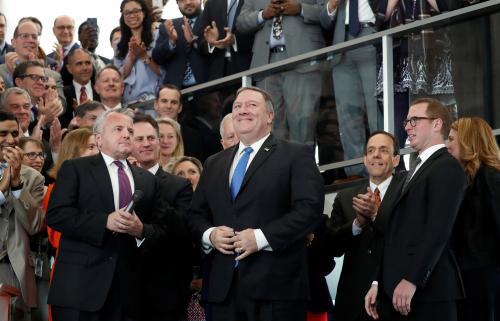
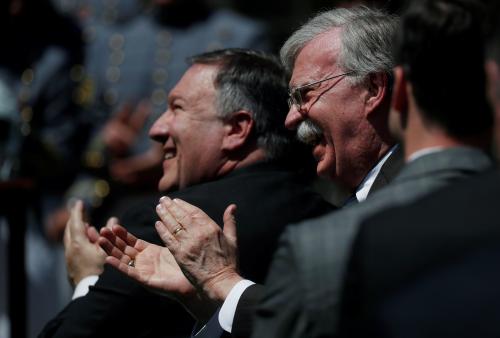
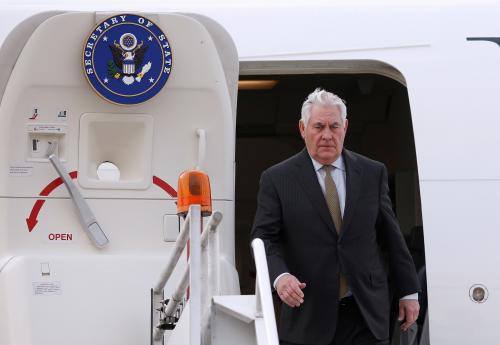
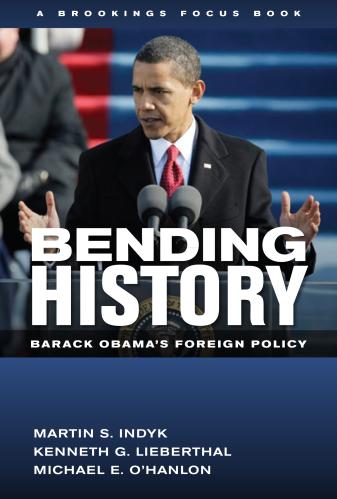
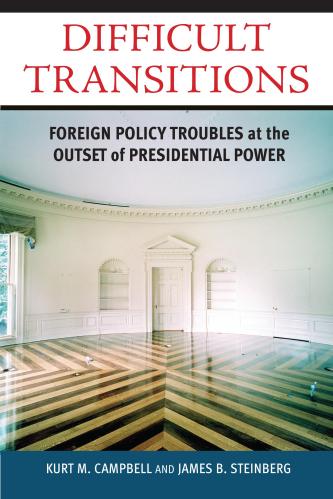





Commentary
Pompeo’s early days and new hires at State show promise
April 30, 2018